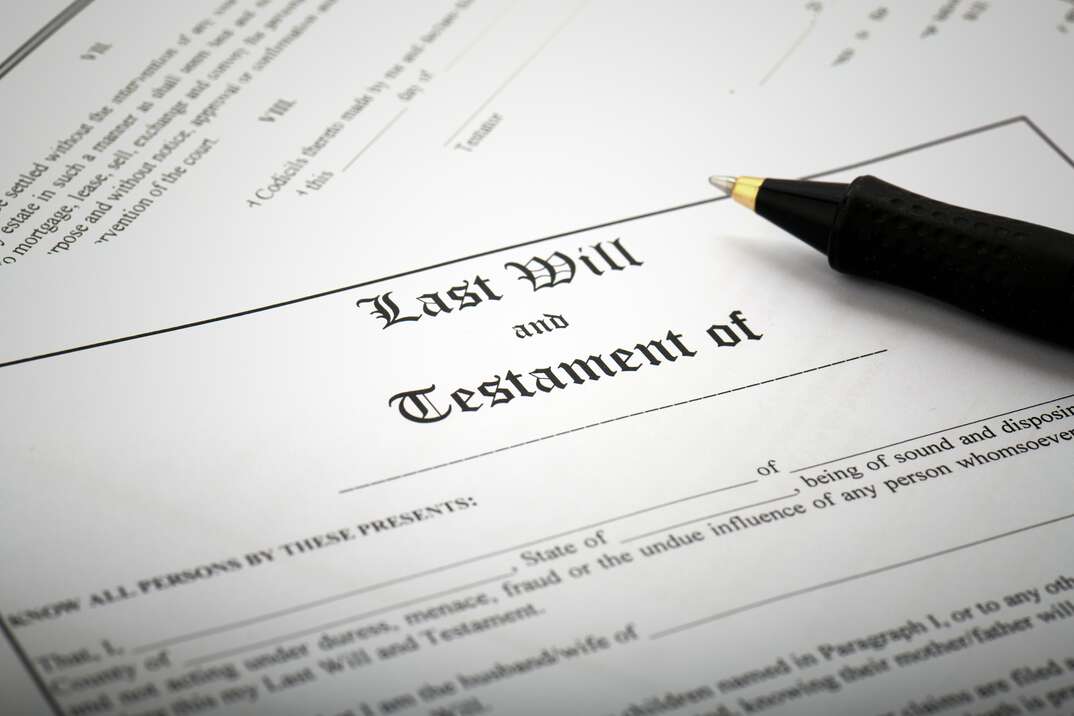- AppliancesElectriciansHVACLandscapingLocksmithPest ControlPlumbingRenovationRoofingT V RepairAll Home Improvement
- Car AccidentClass ActionCorporate LawCriminal DefenseDivorce LawEmployment LawFamily LawFinancial LawLegal AidMedical Injury LawyersMedical MalpracticeReal Estate LawWater Fire RestorationAll Legal
- InvestmentRetirementAll Finance
- Animal InsuranceAutoGeneral InsuranceHealth PolicyHome RentersAll Insurance
- DentalHealth SpecialistsAll Medical
- Animal CareVeterinaryAll Pets
- Auto GlassTowingAll Automotive
What Happens If You Die Without a Will?

Some people believe that estate planning is a process you only need to accomplish when you're older or if you have a lot of wealth.
In reality, adults of any age may benefit from having a valid will. One of those benefits is saving your surviving loved ones from the stress of divvying up your estate if you pass away without a will in place.
Intestate refers to situations where someone has passed away without leaving a will or other binding estate planning documents, such as trusts. Without these legal documents and arrangements, there's nothing for the probate court to go by in determining the deceased's wishes for how assets should be distributed to heirs.
This is true even if you've made those wishes known in an informal manner. For example, if someone has discussed their assets with family members, even making promises about where the assets will go, the court doesn't see this as legally binding. The information must be recorded in a valid will or via another legally binding estate planning method.
What Happens to Your Estate If You Die Without a Will?
If you die without a will — and you don't have trusts set up or other legal methods to support assets passing on to heirs as you dictate — your estate is handled according to state intestacy laws. While each case is unique and each state's laws are different, dying intestate can lead to processes that include:
- The court will appoint an executor of your estate. Typically, you name an executor for your estate in your will. This step lets you choose someone you trust to carry out your wishes and manage your estate well. Dying without a will leaves this choice up to the court.
- Your assets are distributed according to intestate laws. The laws of the state in question, and not specifically your wishes, decide who gets what portion of your assets.
- There are potential legal issues for heirs. Heirs to whom you truly meant to leave assets may have to fight legal battles over these assets if you don't leave a clear estate plan behind.
More Related Articles:
- When Do You Need a Lawyer? Determine If You Need to Hire an Attorney
- What Is a Class-Action Lawsuit?
- What Is a Misdemeanor?
- What to Do After a Car Accident
- What Is Power of Attorney?
What Is the Order of Inheritance?
The order of inheritance in an intestate estate case refers to the order of kinship defined by state law for inheritance purposes. Typically, states put surviving spouses and children at the top of this order. These heirs may be followed by surviving parents, grandchildren, siblings, aunts and uncles, cousins and so forth.
Probate courts attempt to follow the order of inheritance laid out in the state laws when someone dies without a will. While these laws differ a bit in each state, they typically don't include potential heirs such as close friends or unmarried romantic partners, making wills and other estate plans important if you want to leave assets to such individuals.
What Is Probate Court, and What Will It Decide?
Probate court refers to the court that oversees estate administration and hears cases regarding estates and wills. If there's no will, the probate court must decide matters following the estate laws of the state in question.
Does an Estate Have to Go Through Probate Court Without a Will?
Not all estates have to go through probate processes, even if there isn't a will in question. Furthermore, not all assets related to an estate must pass through probate, even if the estate itself does.
Some states have laws that allow for small estates to avoid probate in favor of less time-consuming processes. For example, some states allow for an executor to file a small estate affidavit indicating that an estate is worth less than a specific amount — $15,000 or $50,000, for example. These estates wouldn't have to go through a full probate process.
Assets that are in payable-upon-death accounts also don't have to go through probate. These accounts include forms that name a specific beneficiary, and the assets in the accounts automatically pass to that beneficiary as soon as a death certificate is provided. Common examples of payable-on-death accounts include checking and savings accounts, life insurance policies and some retirement and pension accounts.
Finally, assets that are owned jointly with a right to survivorship typically pass to the surviving owner. One example is when a couple jointly owns a home.
Estate laws vary by state, and exactly what happens if you die without a will can differ from state to state, so it's usually best to talk to an estate attorney to understand the process and your options.
Elocal Editorial Content is for educational and entertainment purposes only. The information provided on this site is not legal advice, and no attorney-client or confidential relationship is formed by use of the Editorial Content. We are not a law firm or a substitute for an attorney or law firm. We cannot provide advice, explanation, opinion, or recommendation about possible legal rights, remedies, defenses, options or strategies. The opinions, beliefs and viewpoints expressed by the eLocal Editorial Team and other third-party content providers do not necessarily reflect the opinions, beliefs and viewpoints of eLocal or its affiliate companies. Use of the Blog is subject to the
Website Terms and Conditions.The eLocal Editorial Team operates independently of eLocal USA's marketing and sales decisions.

